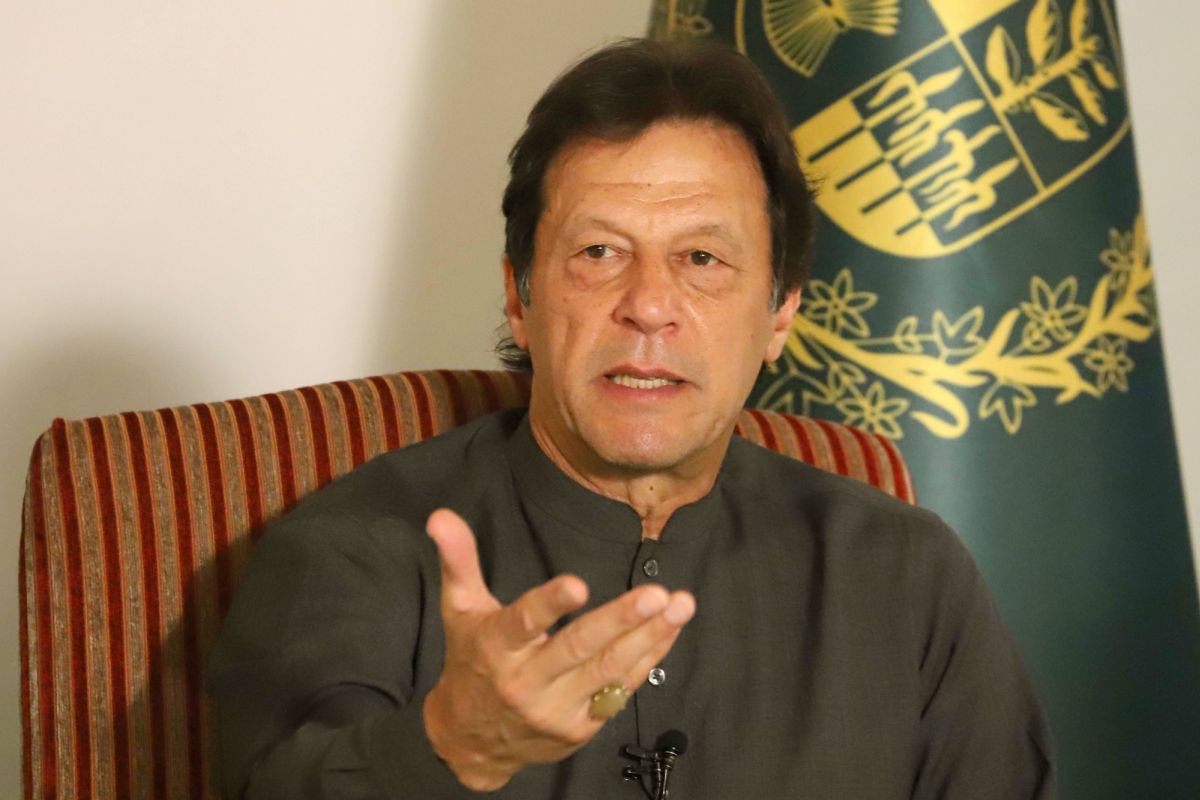Just the other day Pakistan Prime Minister Imran Khan was interviewed by CNN’s Fareed Zakaria. Part of the discussion of his interview has been focused on the prime minister distinguishing between the plight of the Uighur Muslims in China and of Kashmiris in India. However, the notable point in the exchange is not the answer Mr Khan gave but the question that he was asked.
This question, about whether he would condemn Chinese atrocities against the Uighur Muslims, effectively stood for whether Pakistan would stand with the liberal order and its centring of human rights, or with China. There was a time immediately after the collapse of the former USSR in 1989 that suggested that unlike international orders that have existed before, the liberal order would last forever.
Advertisement
It certainly seemed this way for quite some time, as the wave of democratisation spread across the globe to former communist countries. This, in turn, permitted the Western powers, most notably the United States, to stretch the free market and globalisation to the far corners of the world. The ensuing decades became capitalism’s golden age, even as international institutions controlled by the West created trade and exchange mandates that generally favoured the products, demands, etc of Western countries.
Developing nations that were agreeable to the idea of a liberal democracy were blessed with hundreds of millions of dollars in aid and access to their markets. That age is over now. The European Union, once the shining example of the possibilities of the liberal order, faces challenges with national sovereignty raising its head.
The loss of Britain and the inability of everyone else to remain united around the transnational agenda are all testaments to the decline of a kind of thinking that saw national borders as an encumbrance rather than areas of hard-won territorial dominance. Nor does the affliction belong only to the EU. The United Nations, while still doddering along, has become increasingly irrelevant in terms of brokering solutions between anyone except the smallest and poorest countries, in whom the powers that be in the Security Council have little interest.
A case in point is the current conflict in Ukraine and the fact that no one seems to think that the UN, which was ostensibly created to prevent conflict in just such situations, has any solutions. In Foreign Affairs, the publication of the Council of Foreign Affairs, a foreign policy organisation in the US, historian and political scientist Michael Beckley writes about how the “openness” of the markets is now perceived by the US to be a liability.
It is, after all, this openness and the Western willingness to look past China’s undemocratic character that allowed the latter country to be ushered into the World Trade Organisation. The prioritisation of ‘capitalism over democracy’ has allowed it to entrench itself in world trade. The persistence of the liberal order, its ongoing life, is thus dependent on a reprioritisation of democracy over capitalism. This means that illiberal practices — take, for instance, China’s treatment of Uighur Muslims, allegedly involving brainwashing in camps and forbidding the practice of their faith — will be a much bigger deal now.
Beijing’s creation of special trade zones and concerted efforts to expand its influence through the Belt and Road Initiative and various others is seen as a confrontational tone by the West. Furthermore, China’s gathering of warships in the South China Sea and its wanting to reabsorb Taiwan are all seen as deeply problematic initiatives that are aimed at changing the balance of power in the region and in the world at large.
In his essay, Beckley also notes another crucial Chinese goal. According to the five-year plan put out by the Chinese Communist Party (whose endurance is China’s primary national goal), Beijing will be making an effort to get control of what he claims Chinese officials themselves refer to as “chokepoints”. These are the resources that the world is dependent upon, which could be used as leverage.
Similarly, it has not escaped the attention of analysts that China has become the world’s chief dispenser of loans, with most of the world’s countries owing something or the other to Beijing. The US is still the world’s sole superpower, and it appears that it is ready to flex its power in relation to China. Both Democrats and Republicans in the US agree that a hard line on China is crucial and that Beijing needs to be reined in.
In the next few years, the narrative of China as an undemocratic force is likely to gain currency. Many in the neighbourhood may endorse this view. India already sees China as a threatening neighbour, Japan has never had very good relations with the country, and even South Korea is witnessing a change in public opinion.
In its relationship with China, Pakistan should factor in the costs associated with its close collaboration with Beijing. Close relations with an undemocratic behemoth could mean an increase in authoritarian influence within the country. This is particularly dangerous given Pakistan’s existing penchant for authoritarianism and the fragility of its democratic institutions. It is expected, therefore, that the illiberal aspects of Chinese governance will be central to world discourse.
The intention of the question put to the prime minister in the CNN interview was loaded with this content. It was not about whether the victimisation of the Uighur Muslims in China and the persecution of Kashmiri Muslims can be considered comparable in terms of the torture being endured by both. It is instead a way of highlighting the contradiction of Pakistan’s demand that Kashmiri Muslims be given the democratic right to decide their fate while endorsing the undemocratic rule of Han Chinese over the Uighurs in Xinjiang.
(Dawn/ANN.)











